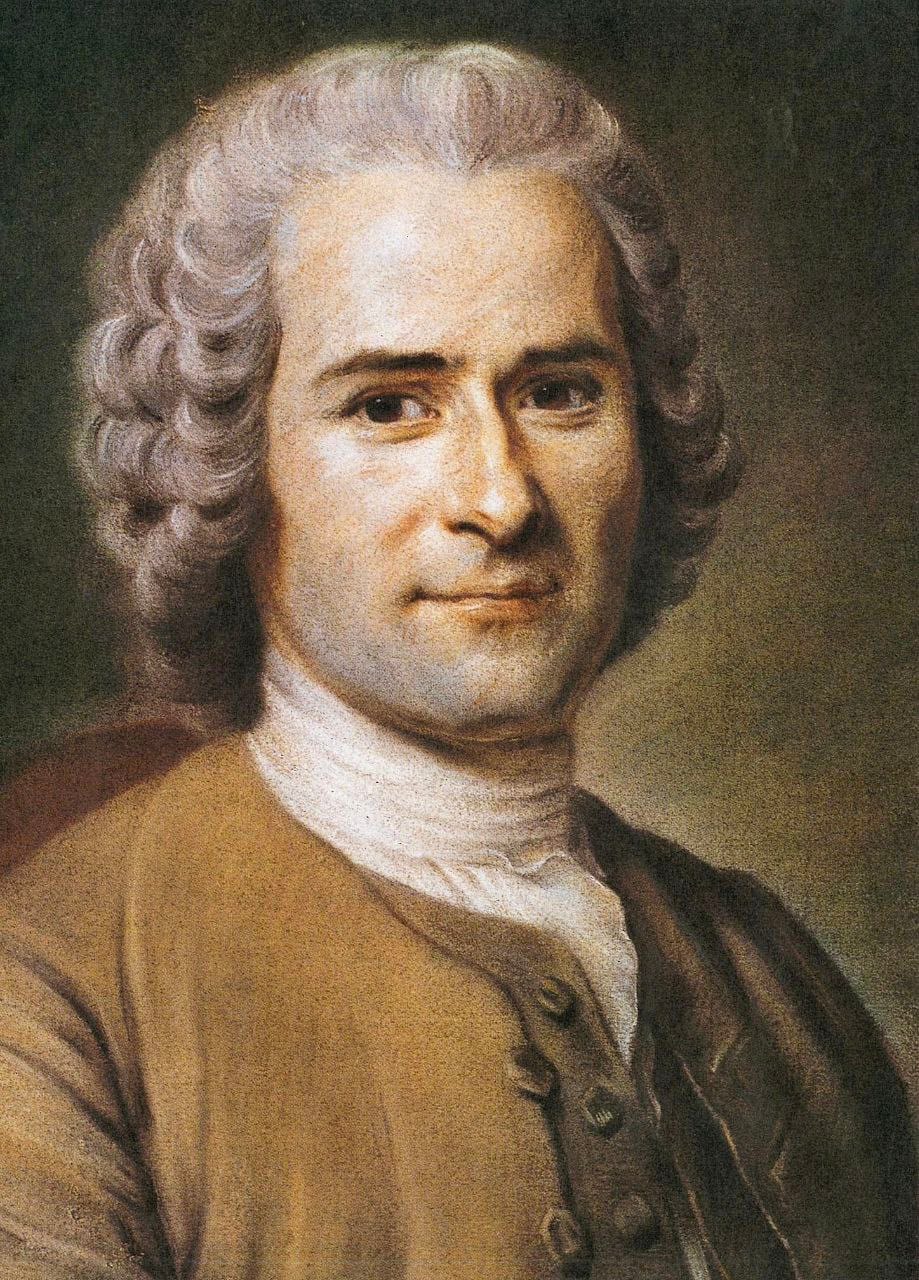Jean-Jacques Rousseau: Introduction, Theories, Criticism, and Conclusion
1. Introduction
Jean-Jacques Rousseau (1712–1778) was a Swiss-born philosopher, writer, and political theorist whose ideas significantly shaped the Enlightenment and influenced political and educational thought. Known for his belief in the natural goodness of humans and his critique of modern civilization, Rousseau stood in opposition to other Enlightenment thinkers like Hobbes and Voltaire. He believed that society and its institutions corrupt the purity of the human spirit, and his work laid the foundations for both modern political theory and educational philosophy.
Rousseau’s major works include The Social Contract, Discourse on Inequality, and Emile. His ideas would later influence the French Revolution, Romanticism, and modern democratic theory.
2. Theories
A. Human Nature and Society
At the heart of Rousseau’s thought is the idea that human beings are naturally good but are corrupted by the influences of society. In his Discourse on the Origin of Inequality (1755), he distinguished between two types of inequality: “natural” (differences in age, strength, etc.) and “moral” or “political” inequality, which he argued were the products of societal institutions.
- State of Nature:
Rousseau’s concept of the “state of nature” describes a hypothetical time when humans lived free from societal influences. In this state, humans were self-sufficient, peaceful, and driven by basic needs and empathy (what Rousseau calls “pitié”). Over time, however, the rise of property, civilization, and social contracts introduced inequality, competition, and dependency on others, corrupting humanity’s original goodness. - The Social Contract (1762):
Rousseau’s The Social Contract is one of his most influential works on political philosophy. He argued that true political authority lies not in monarchs or ruling elites, but in the “general will” of the people. The general will reflects the collective interest of the people, and individuals should submit to it for the common good. He believed that freedom could only be achieved through participation in a political community where laws are created by the people, for the people. - Education – Emile (1762):
In Emile, Rousseau proposed a radical new approach to education, arguing that children should be allowed to develop naturally and be shielded from society’s corrupting influence. Education, for Rousseau, should nurture a child’s natural curiosity and abilities rather than imposing artificial social constraints. This work became foundational in modern educational theory, emphasizing individual growth and learning by experience. - Romanticism and Nature:
Rousseau’s philosophical embrace of nature over civilization helped pave the way for the Romantic movement, which celebrated emotion, individualism, and a deep connection to nature. Rousseau viewed nature as inherently good and believed that living simply in harmony with nature could restore humanity’s virtue.
3. Criticism
A. Idealization of the “State of Nature”:
Rousseau’s vision of the “state of nature” has been criticized as overly idealistic. Critics argue that his portrayal of pre-civilized humans as peaceful and uncorrupted ignores the harsh realities of survival and potential violence in such a condition. Philosophers like Thomas Hobbes, for example, argued that without societal structures, life would be “nasty, brutish, and short.”
B. The General Will and Totalitarianism:
One of the most significant criticisms of Rousseau’s political philosophy concerns his concept of the “general will.” While Rousseau intended this to mean the collective good, critics have pointed out that it can be interpreted in ways that justify authoritarianism. By prioritizing the general will over individual freedoms, Rousseau’s ideas could, in some cases, lead to the suppression of dissent and the establishment of totalitarian regimes. This potential misuse of his philosophy was famously critiqued by philosophers like Isaiah Berlin, who argued that Rousseau’s ideas could lead to “forced freedom.”
C. Inconsistencies in Personal Life:
Rousseau’s personal life has often been a source of criticism, particularly regarding his abandonment of his five children. Despite his progressive ideas on education outlined in Emile, Rousseau placed his own children in orphanages, a contradiction that has cast a shadow over his sincerity and commitment to his ideas.
D. Views on Women:
Rousseau’s perspective on women, especially as outlined in Emile, has been criticized as sexist and regressive. He advocated that women should be educated primarily for domestic roles and to serve the interests of men. His ideas have been challenged by later feminist thinkers who saw them as reinforcing the subjugation of women and limiting their opportunities for intellectual and personal growth.
4. Conclusion
Jean-Jacques Rousseau remains a deeply influential and controversial figure in the history of philosophy and political theory. His vision of human nature, society, and politics continues to provoke thought and debate. His emphasis on the corrupting influence of civilization and his advocacy for popular sovereignty contributed to modern democratic theory and were influential during the French Revolution.
Despite his significant contributions, Rousseau’s theories are not without contradictions and criticisms. His idealized vision of the “state of nature” and the potential authoritarian implications of his “general will” have been sources of concern for critics. His personal life and views on women further complicate his legacy.
In conclusion, Rousseau’s work captures the tension between individual freedom and social cohesion, offering powerful critiques of modern society while raising complex questions about liberty, authority, and human nature. His ideas continue to resonate in discussions on democracy, education, and the relationship between humanity and the natural world.

